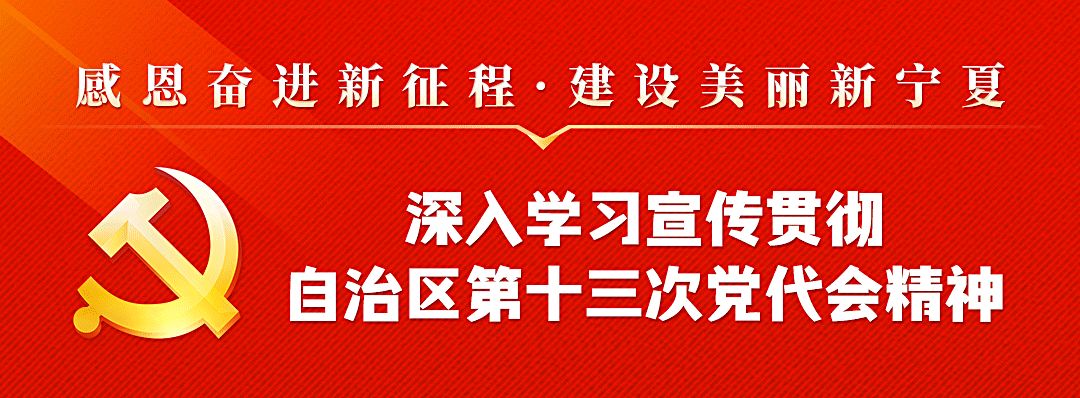To achieve students -centered, only ideas, slogans and rules and regulations are not enough
Author:Journal of China Science Time:2022.07.09
Wen | Guo Yingjian
On May 24th, I published the article "Student -centered, Unlike Student satisfaction as the center" in the "China Science Journal". In the article on the British "Times Higher Education" article, I believe that "student -centered education" The view has evolved into "centered on students' satisfaction" and raised the point of view of correction of the deviation. It is believed that the biggest problem is not "student -centered learning" or "student -centered education". Instead, it is not in place.
After the article was published, it caused some heated discussions. It is also asked that the current policies and regulations of Chinese universities are complete and standardized. Many universities have various scholarships and scholarships, and the radiation surface is wide, but why is it still considered to be students -centered?

High foresight and accurate judgment
As we all know, if you want to do students as the center, only ideas, slogans, and rules and regulations are not enough. How to implement ideas and systems on every student who encounters difficulties is essential. I think that when the student -centered philosophy and system are implemented, colleges and universities should have a high degree of foresight and accurate judgment.
The so -called predictability refers to a clear prediction and forward -looking for all students, things, things and their development associated with all students in universities. The so -called judgment is a choice made by the actual situation and the actual needs of students. The words and deeds after this choice represent the attitude of teaching and educating people in colleges and universities and the values of shaping the students' personality.
The management policies and measures of higher education should not only have specific provisions. While paying attention to the understanding and specific interpretation of its text, we should also pay more attention to how to deal with the problems at the specific operation level. It is true that this requires effective remedial measures for management, but it is necessary to foresee the possible problems when issuing relevant regulations and measures. For all regulations and measures related to students, colleges and universities should think of problems that may be encountered in specific operations when formulating.
In the following, I will start with details of teaching and management to see how we strengthen foreseeableness and judgment, so that we can more reflect the educational concept of "student -centric".

How to care about students' professional questions
I have always believed that the biggest problem of Chinese universities today is management issues. Although management issues have a lot to do with managers, it is not only a problem of managers, but a university question that has something to do with all faculty and staff.
For example, how can managers predict the problems and questions that students exist? The questions here are related to students' rest, such as professional selection, curriculum content, award -winning scholarships, etc. Since the award -winning scholarships of our universities are another system, it is not repeated here. It is only for professional issues to explore the need for improvement.
Today, when freshmen enter the school, there will be a more detailed student manual, which is mostly a thick. But even if the students have read the whole book, there will be a lot of confusion and problems. College managers cannot take it for granted that students read the rules and regulations, and all their problems and questions will be solved. Because students are likely not to read those eight -stranded provisions at all, they mainly rely on teachers' explanations and classmates to obtain corresponding information.
In this way, when they have questions and problems, they naturally want to find faculty and staff inquiries. If you simply rely on managers to answer these questions, you will waste the time of teachers and students and waste each other. But unfortunately, this is the main way for many universities to deal with such problems at the moment.
In fact, the easiest way to solve this problem is through the college website.
Inadequate information, considering unreasonable, and not using web pages as transit stations for information and resources are the common problems of many websites at the moment, but this is not the point I want to talk about.
Browse many colleges and universities, especially colleges, will have a big question, that is, I do n’t know who it shows it. In other words, although all universities and secondary colleges attach great importance to web pages, their common problems are -web pages seem to show everyone, but often ignore the most important browsing objects -students, including future students, students in the future , Alumni who are students and graduates.
For college websites, students should be regarded as the most important browsing objects. If this standard, many colleges' websites are not qualified. Because it fails to reflect the content of students' concerns, nor does it have a channel function that students find all useful information resources.
Some people may say that many universities have strong campus networks, including rich information resources, but even so, it cannot replace the role that should be assumed by the college website. For example, the detailed information of the college related majors, the status of the professional teachers, the rich content of the course, and the answers that should be provided for the questions encountered by the students in this major.
In this regard, top foreign universities already have very mature experience. Taking the website of the English Department of Harvard University as an example, the following features can be seen.
First, centered on school students. Headlines are the most concerned about students -the status of professional teachers, how to enter or transfer to the major, and the characteristics of key courses.
Secondly, professional information is complete. For undergraduates and graduate students to set different menus, there are everything that is closely related to them, including professional guidelines, how to apply and transfer to English majors, how to apply for a second major, and how to seek mentor help. The graduate content includes how to apply for a graduate degree, which The descriptions of various majors, how to write papers, thesis writing resources, etc. Of course, the course menu is indispensable, which has information about all courses in semester or academic year. If the course itself has a website, the curriculum website links will be placed on it. It can be said that through this website, students can understand almost all concerns. In this way, they will not take the time to find the faculty and employees, which also reduces the unnecessary burden of faculty and staff.
Of course, this is not only available in the English Department of Harvard, but a common practice of many American universities.
In addition, I have a very simple suggestion on the website of college colleges -in addition to enriching various professional information, for various very important issues, especially the common issues that students may have. The method of question and answer "(QA) is listed in the form of all predicted questions in a question and one answer, which may better reflect the student -centered concept.
How to treat the question of "not understand"

"Student -centered" does not mean that "student satisfaction" should be measured. In terms of students' academic issues, colleges and universities should have more accurate judgment and measures properly.
We know that whether it is undergraduate teaching or a master's degree in teaching, we often encounter students' phenomena that do not understand the curriculum reading and the courses taught by teachers. In reality, the most common approach to this situation is to compromise teachers, reduce the difficulty of curriculum, and reduce reading.
This approach seems to be centered on students' needs, which meets the current desires of students. Students may be satisfied to a certain extent, but they are likely to be improper. The error is reflected in the following three aspects.
The first is not a survey. In this case, how many students should first report a real and effective investigation of the course problems. If a few people and even a few people are issues, then helping them solve the difficulties encountered in learning and keep up with the existing course progress, they are truly student -centered. Simply reduce the difficulty of curriculum and reduce reading, it is actually mixed with water for education quality.
The second is not reflection. If there are 1/3 or 1/2 students who reflect the problems of the curriculum, the most thing that teachers should do is to reflect on the syllabus and the daily teaching. The college should reflect on whether the talent training plan of related majors meets its national standards and teaching guidelines. If the outline may not meet national standards and teaching guidelines, it should be corrected immediately.
If the teacher's investigation finds that it is a few students, or after reflection, it is found that it is neither overlooking, nor does it meet national standards and teaching guidelines. Essence
In the past 10 years, the construction of various majors in colleges and universities has been quite standardized. From the standards of the state to the state, to the talent training programs of various majors in colleges and universities, the individual teachers must also prepare the syllabus before the class to allow students to understand the learning situation in advance. After such standards, the reading volume and difficulty of the course have been detailed by experts. Many courses have also passed through many years and multi -round curriculum in different universities. Generally, there will National standards and other phenomena.
In this way, what the teacher needs to do is to continue to face the personalized problems of individual students while continuing to teach the original teaching outline, find ways to let them eliminate the distorted thoughts, and try to catch up with the outline requirements.
It is particularly worth noting that teachers have the responsibility to warn students in advance and have the obligation to remind them afterwards. Tell students that the selection of courses in fact indicates the responsibility of hard work, and has the responsibility to overcome difficulties.
Based on my study experience and observation in American universities, only in the field of humanities and social sciences, American college students rarely publicly report to teachers that the curriculum does not understand and requires the difficulty of reducing the course. There are two reasons.
First of all, the content, reading volume, and reading content of related courses are all publicly online. All students who want to choose a course can also understand in advance.
Secondly, the two weeks before the start of the university belong to the audition stage. Students can come to listen to lectures, communicate with the teachers in person, and get the opportunity to further understand the curriculum and answer questions.
It can be said that when almost all students finally confirmed a course, they had a very clear understanding of the reading and difficulty of the course. If this course is still adhered to at this time, even in the future study, even if you really feel difficult, you can only grit your teeth to overcome it. Because this is the choice of "knowing that there is a tiger in the mountains, and to the tiger mountain".
At present, many domestic universities also have a audition stage. If the comprehensive disclosure of the information is further strengthened, the above -mentioned students will make less and less requirements to reduce the difficulty. Of course, for the students who cannot keep up, the college should intervene and do a good job of students with teachers. At this time, persuading him to retire or even transfer to a major is a manifestation of the care of students.
I have always thought that almost all the current problems of Chinese universities can find the source of management -macro, management involves the mission of university, which is specifically reflected in the management concepts, values, policies and measures and measures, but in the end they are all in the end It depends on how to fall into practice and how effective. After all, everything is about details.
Practice students, win people's minds and slogans, and every detail in real life.How to truly take students as the center in reality is precisely the test of the tested stones of the college education and its managers in our country.(The author is a professor at Renmin University of China. This article is a key project of the National Social Science Fund "Reform and Reconstruction of my country's Higher Foreign Language Education System in the New Era" "Project Approval Number: 21AYY016> Pharmaceutical Achievement)
"China Science News" (2022-07-05 The 3rd edition of the 3rd edition of the original title is "Student-centered, colleges and universities must have foreseeable and judgment")
Edit | Ji Data-FILTERED="Filtered">
Capture | Jiang Zhihai

- END -
Public welfare promotional video "You have you in the west of the west"

"Data-version =" 0 "data-vwidth =" 1920 "data-vHeight =" 1080 "transcoding ...
Relational of the work of corruption and unfairness of the people around the people around the people of Zhejiang: The discipline is a new style of the people for the people

Zhejiang News Client Correspondent Yan Xinwen Zhang Qiao Profile reporter Song Zhe...